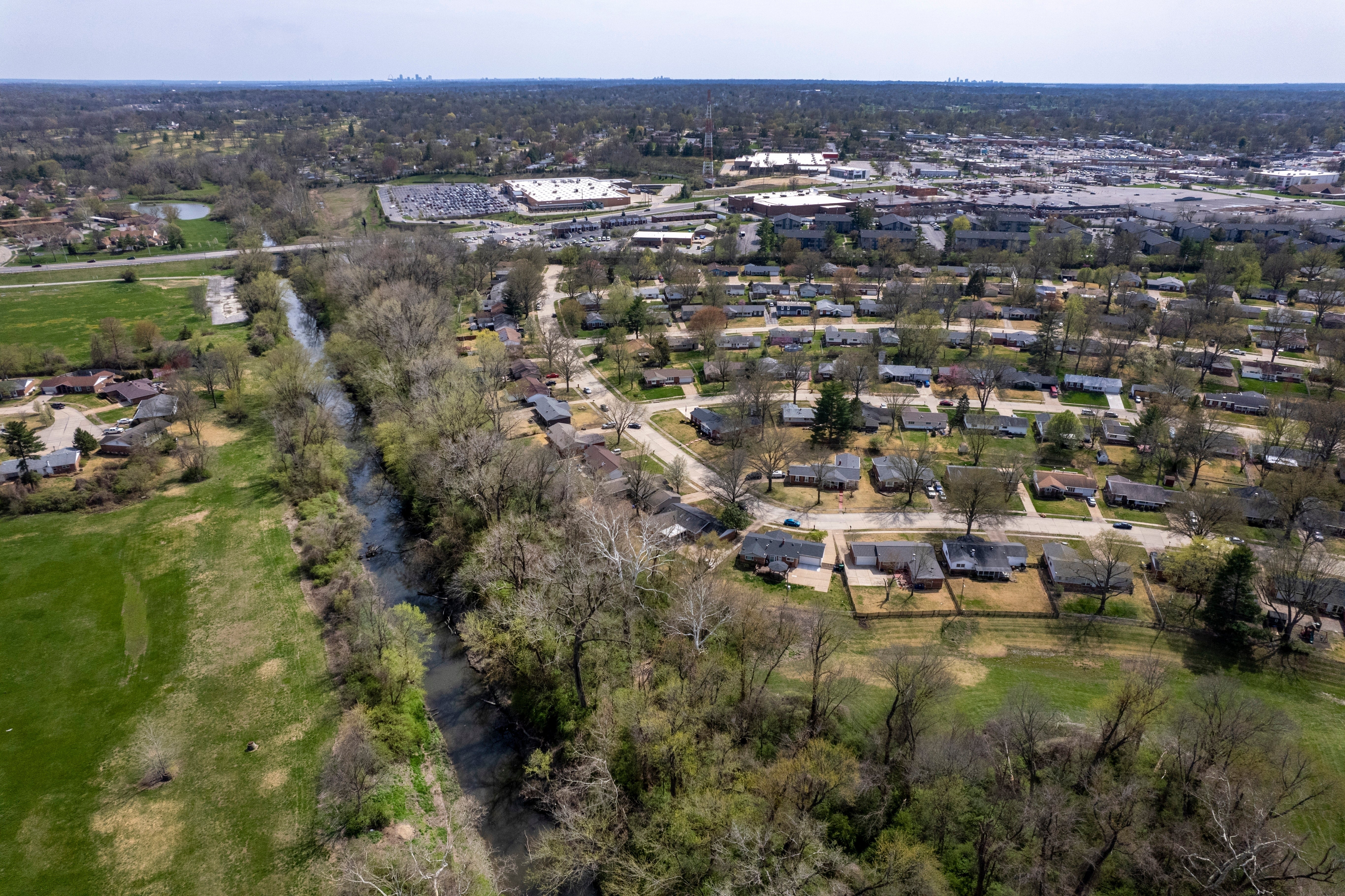Army Corps finds soil contaminated under some St. Louis-area homes, but no health risk
The Army Corps of Engineers has determined that soil is contaminated beneath some suburban St. Louis homes near a creek where nuclear waste was dumped decades ago, but the contamination isn’t enough to pose a health risk

Your support helps us to tell the story
From reproductive rights to climate change to Big Tech, The Independent is on the ground when the story is developing. Whether it's investigating the financials of Elon Musk's pro-Trump PAC or producing our latest documentary, 'The A Word', which shines a light on the American women fighting for reproductive rights, we know how important it is to parse out the facts from the messaging.
At such a critical moment in US history, we need reporters on the ground. Your donation allows us to keep sending journalists to speak to both sides of the story.
The Independent is trusted by Americans across the entire political spectrum. And unlike many other quality news outlets, we choose not to lock Americans out of our reporting and analysis with paywalls. We believe quality journalism should be available to everyone, paid for by those who can afford it.
Your support makes all the difference.The Army Corps of Engineers has determined that soil is contaminated beneath some suburban St. Louis homes near a creek where nuclear waste was dumped decades ago, but the contamination isn't enough to pose a health risk.
Soil beneath six homes at the Cades Cove subdivision in Florissant "will not need to be remediated,” Robin Parks, a lead engineer for the St. Louis District of the Corps, told the St. Louis Post-Dispatch on Thursday. “That’s how we say something is clean, in simple terms.”
The Corps announced in March it was taking soil samples from the properties that sit near Coldwater Creek, a meandering waterway contaminated after nuclear waste was dumped there in the 1960s. The decision was made after contamination was found in the homes’ backyards, but not the front yards, the Corps said at the time.
The Corps said that when the Cades Cove subdivision was being built more than 30 years ago, a portion of the creek was covered in fill dirt. The latest testing sought to determine if that fill dirt was contaminated.
Gina McNabb, a Cades Cove resident whose yard was tested, said the decision leaves her uncertain about what to do next. She said she is nervous about disturbing the contamination that’s currently underground, if it could potentially go airborne. At the same time, she’s uncomfortable just leaving it in place.
“Now that we know it’s there, it does pose a concern,” she said.
Uranium processing in the St. Louis area played a pivotal role in developing the nuclear weapons that helped bring an end to World War II and provided a key defense during the Cold War. But the region is still dealing with contamination at several sites.
Nuclear waste stored near Lambert Airport made its way into Coldwater Creek in the 1960s. Many people in that area believe the contamination is responsible for cancers and other illnesses, though experts say connecting radiation exposure to illness is difficult.
In 2022, a Florissant grade school closed amid worries that contamination from the creek got onto the playground and inside the building.
In July, an investigation published by The Associated Press, The Missouri Independent and MuckRock showed that the federal government and companies responsible for nuclear bomb production and atomic waste storage sites in the St. Louis area were aware of health risks, spills, improperly stored contaminants and other problems but often ignored them.
Several members of Missouri's congressional delegation were angered when a deadline to reauthorize the Radiation Exposure Compensation Act (RECA) expired on June 7. Republican Sen. Josh Hawley, Democratic U.S. Rep. Cori Bush of St. Louis and others had pushed for RECA to be expanded to provide compensation for Missourians and others whose illnesses may be tied to radioactive contamination.